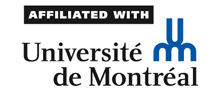By Jessica Fortin-Rittberger, Philipp Harfst, and Sarah C. Dingler (University of Salzburg)
What is the story?
Perceptions of electoral fairness have an impact on voters’ attitudes and behaviour. Consequently, we believe that electoral malpractice will negatively affect citizens’ satisfaction with democracy. In a recently published article in the Journal of Elections, Public Opinion and Parties we argue that election tinkering shapes citizens’ feelings about democracy.
Hypotheses
The first hypothesis we examine draws on the direct link between electoral fraud and voters’ attitudes towards democracy. We expect that a high amount of fraud reported in elections should be related to low levels of satisfaction with the way democracy works.
Winning an election could change the nature of this relationship and positively affect voters’ attitudes irrespective of the degree of electoral misconduct. Thus, we also hypothesise that voters’ status as winners or losers will mediate the effect of electoral fraud on satisfaction with democracy.
Results
Using survey data from CSES, we explore 48 elections in 29 countries in the timespan between 1998 and 2006. Rather unsurprisingly, we can show that high levels of electoral fraud correspond to a lower degree of satisfaction with democracy (see Figure 1).
Figure 1: Overall magnitude of problems in elections in relation to average satisfaction with democracy.
Notes: Data taken from CSES and QED. Figure contains 57 elections. Pearson’s r = −0.55.
However, this relationship is not straightforward. We find that citizens’ attitudes also depend on the outcomes of the election. While citizens who have voted for the winning party are more satisfied, this relationship only holds when elections are free and fair. As soon as elections are fraught with manipulation and malpractice, winning and losing no longer exert different effects on voters’ evaluation of the way democracy works. Election fraud thus affects the perceptions of citizens in the same way, no matter if they are on the winning or losing side.
Conclusions
Our findings have a far-reaching impact: If satisfaction with democracy is anchored on citizens’ evaluation of the performance of governments, the cost of electoral malpractice is high. Fraudulent practices are likely to negatively affect citizens’ evaluations of government and, ultimately, could undermine regime stability, especially in emerging or fragile democracies. We know that broad support for democratic values is an underlying condition for democratic consolidation. Widespread electoral fraud could therefore result in particularly inauspicious climates for the survival of new democracies. Yet our findings offer a glimmer of hope: citizens’ levels of satisfaction in third wave democracies remains higher than in older established democracies in spite of electoral malpractice.
For more details, see Jessica Fortin-Rittberger, Philipp Harfst & Sarah C. Dingler. 2017. “The costs of electoral fraud: establishing the link between electoral integrity, winning an election, and satisfaction with democracy”. Journal of Elections, Public Opinion and Parties, DOI: 10.1080/17457289.2017.1310111.
